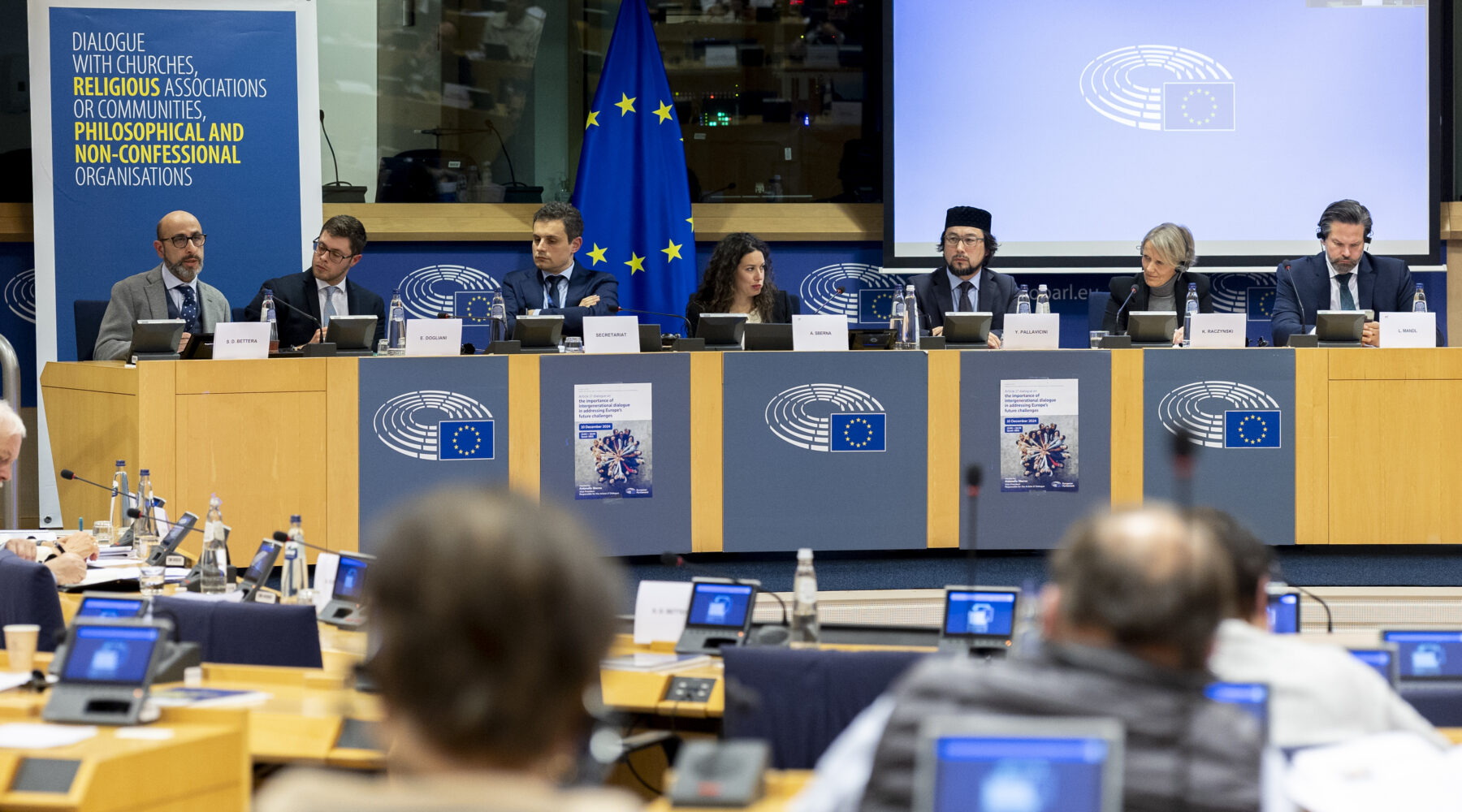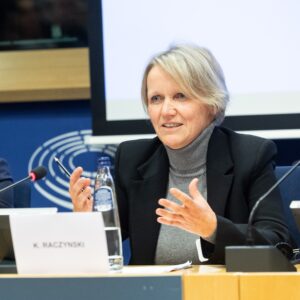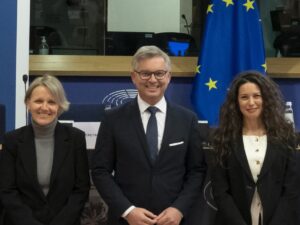


On 10 December, Humanists International took part in the European Parliament’s Article 17 seminar, “The Importance of Intergenerational Dialogue in Addressing Europe’s Future Challenges.” The event, hosted by Vice-President Antonella Sberna (Italy, European Conservatives and Reformists) and organised in collaboration with the Committee on Culture and Education (CULT), focused on the role of intergenerational fairness in shaping equitable EU policies.
Katrin Raczynski, Chairperson of the Humanist Association of Germany (Humanistischer Verband Deutschlands), was nominated by Humanists International to speak during the seminar’s first panel, titled “How to Promote Social Cohesion and Cultural Plurality in Our Communities?”

Katrin Raczynski delivering her intervention at the European Parliament
Her intervention highlighted the diminishing spaces for constructive dialogue in modern discourse and emphasized the humanist approach to dialogue. She pointed to the erosion of balanced public discourse caused by polarisation. Katrin Raczynski spoke about the importance of intergenerational dialogue in addressing complex societal challenges, noting that different generations often bring diverse perspectives shaped by their distinct experiences. She explained that fostering dialogue requires intentional effort to create spaces where individuals can exchange views openly and respectfully. Reflecting on her work within the humanist movement, she illustrated how intergenerational discussions can lead to constructive outcomes, even when opinions differ significantly.

Katrin Raczynski, European Commissioner Magnus Brunner, European Parliament Vice-President Antonella Sberna
“As humanists, we believe in humanity’s capacity for reason and empathy,” Katrin Raczynski affirmed. “Our worldview emphasizes a discussion culture guided by respect and the best arguments—not artificial harmony, but a sincere engagement with differences.”
The event also featured Magnus Brunner, the newly appointed European Commissioner for Internal Affairs and Migration, who is also responsible for the implementation of Article 17 TFEU. Other panelists included a diverse group of religious and non-religious representatives. Humanists International Chief Executive Gary McLelland attended the event.
The seminar marked the formal resumption of Article 17 activities in the new European Parliament legislature, under Vice-President Sberna’s leadership. Article 17 of the Treaty on the Functioning of the European Union (TFEU) establishes the legal framework for the EU’s engagement with religious, philosophical, and non-confessional organisations. It mandates the EU to maintain an open, transparent dialogue with these groups.
Please see here for a recording of the event.
Featured photo by Alain ROLLAND © European Union 2024 – Source : EP